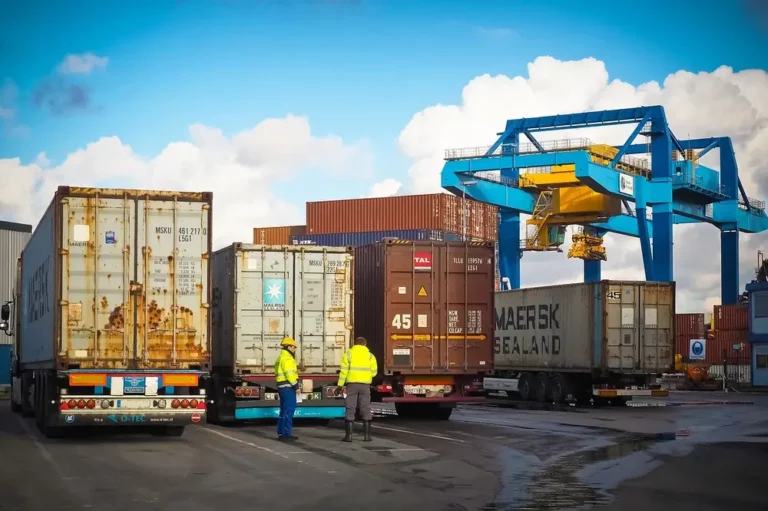Understanding Environmental Supply Chain Management
In today’s world, businesses are increasingly focusing on sustainability and environmental responsibility. One area where this is particularly important is supply chain management. In this article, we will explore the concept of supply chain sustainability, the impact of social and environmental factors on the supply chain, best practices for sustainable supply chain management, the importance of supply chain sustainability, and how companies can achieve a sustainable supply chain.
Table of Contents
What is supply chain sustainability?
Defining supply chain sustainability
Supply chain sustainability refers to the practice of incorporating sustainable and responsible practices throughout the entire supply chain. It involves considering the social, environmental, and economic impacts of every decision made within the supply chain. By implementing sustainable practices, companies can ensure the long-term sustainability of their supply chain operations.
Benefits of supply chain sustainability
There are several benefits to adopting supply chain sustainability practices. Firstly, it helps to reduce the environmental impact of the supply chain by minimizing carbon emissions and promoting sustainable sourcing. It also improves working conditions for supply chain employees, ensuring their health and safety. Additionally, supply chain sustainability can help businesses meet stakeholder expectations for sustainability and enhance their reputation.
Challenges of implementing supply chain sustainability
Implementing supply chain sustainability can be challenging for businesses. It requires close collaboration with suppliers and other stakeholders in the supply chain. It also requires measuring and reducing the environmental impact of the supply chain, which can be complex and resource-intensive. However, the benefits of implementing supply chain sustainability far outweigh the challenges.
How does environmental and social impact affect the supply chain?
Understanding the environmental impact of the supply chain
The supply chain has a significant environmental impact. From sourcing raw materials to manufacturing and distribution, every step in the supply chain contributes to carbon emissions and other environmental issues. By understanding and addressing this impact, companies can reduce their environmental footprint and create a more sustainable supply chain.
Social impact is another important consideration in supply chain management. Issues such as labor practices, health and safety, and working conditions can have a significant impact on the sustainability of the supply chain. By addressing these issues and promoting responsible practices, companies can create a more socially sustainable supply chain.
Implementing sustainable practices in the supply chain
To address the environmental and social impact of the supply chain, companies need to implement sustainable practices. This includes sourcing materials from sustainable sources, reducing waste and energy consumption, and promoting responsible labor practices. By implementing these practices, companies can create a more sustainable and socially responsible supply chain.
What are the best practices for sustainable supply chain management?
Setting sustainability goals in the supply chain
Setting clear sustainability goals is essential for sustainable supply chain management. These goals should align with the company’s overall sustainability objectives and be measurable and time-bound. Setting goals helps to create a roadmap for sustainability initiatives and ensures that progress can be tracked and evaluated.
Working with suppliers to promote sustainability
Suppliers play a crucial role in the sustainability of the supply chain. Companies should work closely with their suppliers to promote sustainability throughout the entire supply network. This can include sharing best practices, providing sustainability training, and collaborating on sustainability initiatives. By working together, companies and suppliers can create a more sustainable supply chain.
Measuring and reducing environmental impact in the supply chain
Measuring and reducing the environmental impact of the supply chain is a key aspect of sustainable supply chain management. Companies should track key sustainability performance indicators, such as carbon emissions and water usage, and take proactive measures to reduce their environmental footprint. This can include adopting green supply chain initiatives, implementing energy-efficient practices, and optimizing transportation routes.
Why is supply chain sustainability important?
Reducing greenhouse gas emissions in the supply chain
One of the main reasons why supply chain sustainability is important is its impact on greenhouse gas emissions. The supply chain contributes to a significant portion of global emissions, and by implementing sustainable practices, companies can play a crucial role in reducing these emissions. This is particularly important as the world faces the challenges of climate change.
Improving working conditions for supply chain employees
Supply chain sustainability also focuses on improving working conditions for supply chain employees. By ensuring fair wages, safe working environments, and access to training and development, companies can create a more sustainable and ethical supply chain. This not only benefits the employees but also enhances the reputation of the company.
Meeting stakeholder expectations for sustainability
In today’s socially conscious world, stakeholders expect companies to operate in a sustainable and responsible manner. This includes having a sustainable supply chain. By meeting these expectations, companies can build trust with their stakeholders, enhance their reputation, and attract socially responsible investors and customers.
How can companies achieve a sustainable supply chain?
Implementing green supply chain initiatives
Implementing green supply chain initiatives is one way companies can achieve a sustainable supply chain. This involves adopting environmentally friendly practices, such as using renewable energy sources, reducing waste, and promoting circular economy principles. By implementing these initiatives, companies can reduce their environmental impact and create a more sustainable supply chain.
Collaborating with global supply chain partners
Global supply chain collaboration is essential for achieving a sustainable supply chain. Companies should work closely with their global partners to share best practices, align sustainability goals, and promote responsible sourcing. By collaborating, companies can leverage the expertise and resources of their partners to create a more sustainable and efficient supply chain.
Ensuring transparency in the supply chain
Transparency is a crucial element of a sustainable supply chain. Companies should ensure transparency by mapping their supply chain, tracking the origin of raw materials, and promoting ethical sourcing practices. By providing transparency, companies can build trust with their stakeholders and demonstrate their commitment to sustainability.
In conclusion, understanding and implementing supply chain sustainability is crucial for businesses in today’s world. By considering the environmental and social impact of the supply chain, setting sustainability goals, working with suppliers, and implementing sustainable practices, companies can achieve a more sustainable and responsible supply chain. This not only benefits the environment and society but also enhances the reputation and long-term sustainability of the business.
How GoComet Facilitates Environmental Supply Chain Management
GoComet’s services align with the principles of Environmental Supply Chain Management. Our platform provides real-time data on your supply chain operations, enabling you to monitor and manage your cargos, containers, and trucks in an environmentally friendly way.
Our features support sustainable practices by providing route optimization to reduce fuel consumption, efficient loading and unloading to minimize energy use, and tracking systems to provide valuable data for identifying inefficiencies and areas for improvement. For instance, if a particular route is consistently causing delays, our platform can help you investigate alternative routes or transportation methods that could be more efficient and environmentally friendly.
But our commitment to ESCM goes beyond just providing a platform. We believe in creating a culture of sustainability and environmental responsibility. We continuously strive to improve our platform and services to help our clients achieve their environmental goals. Whether it’s through green supply chain management or environmental collaboration, we are committed to promoting sustainability performance in the logistics industry.
Implementation of Environmental Supply Chain Management with GoComet
Implementing Environmental Supply Chain Management in your logistics operations begins with a thorough assessment of your current supply chain processes. This involves identifying the environmental impact at each stage of the supply chain, from sourcing and production to transportation and delivery.
Once you have a clear understanding of your supply chain’s environmental footprint, you can start to implement changes. This might involve switching to more sustainable materials, optimizing transportation routes to reduce fuel consumption, or implementing more efficient manufacturing processes.
However, implementing these changes can be challenging. It requires a deep understanding of your supply chain and the ability to make data-driven decisions. This is where GoComet can be invaluable. By providing real-time data on your supply chain operations, GoComet can help you identify areas for improvement and track the impact of your changes.
But the implementation of ESCM is not a one-time process. It’s a continuous journey of improvement and adaptation. As new environmental issues emerge and new technologies become available, businesses need to continuously update their ESCM strategies. And this is where GoComet can help. With our platform, you can easily adapt to changes and ensure that your supply chain remains environmentally sustainable.
Conclusion
In conclusion, Environmental Supply Chain Management is a powerful approach that can help logistics companies reduce their environmental footprint, improve efficiency, and enhance their reputation. By understanding the concept of ESCM, recognizing its benefits, and leveraging logistics visibility solutions like GoComet, companies can effectively implement ESCM in their operations and stay ahead of future trends.
As we move towards a more sustainable future, the importance of ESCM in logistics will only continue to grow. Therefore, it’s crucial for logistics companies to start implementing ESCM strategies now. Not only will this help them reduce their environmental impact, but it will also position them for success in the increasingly competitive logistics industry. We encourage businesses to adopt Environmental Supply Chain Management with GoComet and take a step towards a more sustainable future.







